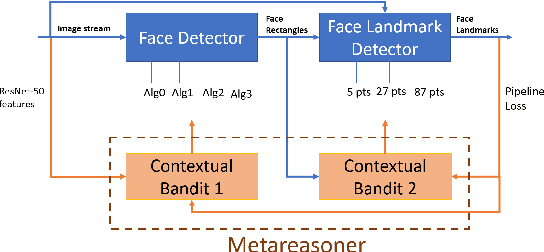Metareasoning in Modular Software Systems: On-the-Fly Configuration using Reinforcement Learning with Rich Contextual Representations
Paper and Code
May 12, 2019



Assemblies of modular subsystems are being pressed into service to perform sensing, reasoning, and decision making in high-stakes, time-critical tasks in such areas as transportation, healthcare, and industrial automation. We address the opportunity to maximize the utility of an overall computing system by employing reinforcement learning to guide the configuration of the set of interacting modules that comprise the system. The challenge of doing system-wide optimization is a combinatorial problem. Local attempts to boost the performance of a specific module by modifying its configuration often leads to losses in overall utility of the system's performance as the distribution of inputs to downstream modules changes drastically. We present metareasoning techniques which consider a rich representation of the input, monitor the state of the entire pipeline, and adjust the configuration of modules on-the-fly so as to maximize the utility of a system's operation. We show significant improvement in both real-world and synthetic pipelines across a variety of reinforcement learning techniques.
 Add to Chrome
Add to Chrome Add to Firefox
Add to Firefox Add to Edge
Add to Edge